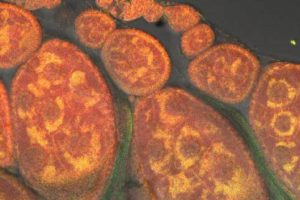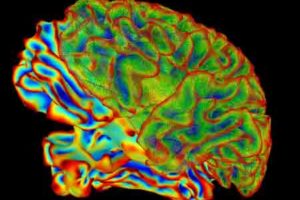national institute on alcohol abuse and alcoholism
Potential of anti-stress peptide to block alcohol dependence
New research by scientists at the Scripps Research Institute has underlined the power of an endogenous anti-stress peptide in the brain to prevent and even reverse some of the cellular effects of acute alcohol and alcohol dependence in …
University of Maryland School of Medicine study identifies genes associated with binge drinking
University of Maryland School of Medicine researchers have identified two genes associated with binge drinking that may open doors to new, more effective treatments for excessive alcohol drinking. The scientists found that manipulating two receptors…
Pretreatment increases liver transplant survival
Pretreating transplanted livers with the immune molecule interleukin-6 (IL-6) dramatically increased survival of rats receiving organs with fatty degeneration–a common condition in humans that typically reduces transplant viability. The results suggest a means of making it possible to use a higher percentage of available donor livers for transplantation in humans. With over three times as many Americans needing transplants as there are available donor livers, an effective approach to increasing the number of viable donor organs would help narrow the gap between demand and supply.
Alcohol researchers relate a genetic factor to anxiety in women
Researchers have identified a genetic factor that appears to influence anxiety in women. Combining DNA analysis, recordings of brain activity, and psychological tests, investigators at the National Institute on Alcohol Abuse and Alcoholism (NIAAA) found that Caucasian and American Indian women with the same gene variant had similarly high scores on tests that measure anxiety. These women also had similar electroencephelograms (EEG) — recordings of brain electrical activity as unique as an individual’s fingerprints — that showed characteristics of anxious temperament, further strengthening the association of this shared genetic factor with anxiety. The study appears in the current issue of the journal Psychiatric Genetics.
Alcohol Researchers Identify a Genetic Basis of Pain Response
A common genetic variant influences individual responses and adaptation to pain and other stressful stimuli and may underlie vulnerability to many psychiatric and other complex diseases, reports David Goldman, M.D., Chief, Laboratory of Neurogenetics, National Institute on Alcohol Abuse and Alcoholism, and colleagues at NIAAA and the University of Michigan. COMT val158met Genotype Affects m-Opioid Neurotransmitter Responses to a Pain Stressor appears in the February 21 issue of Science.
Mouse model links alcohol intake to marijuana-like brain compounds
Brain molecules similar to the active compound in marijuana help to regulate alcohol consumption, according to new reports by scientists. In studies conducted with a strain of mice known to have a high preference for alcohol, the scientists found greatly reduced alcohol intake in mice specially bred to lack CB1, the brain receptor for innate marijuana-like substances known as endocannabinoids. The effect was age dependent, the Bethesda group found. The New York scientists showed that the endocannabinoid system activates a brain region known as the nucleus accumbens, which plays a major role in mediating the rewarding effects of alcohol.





